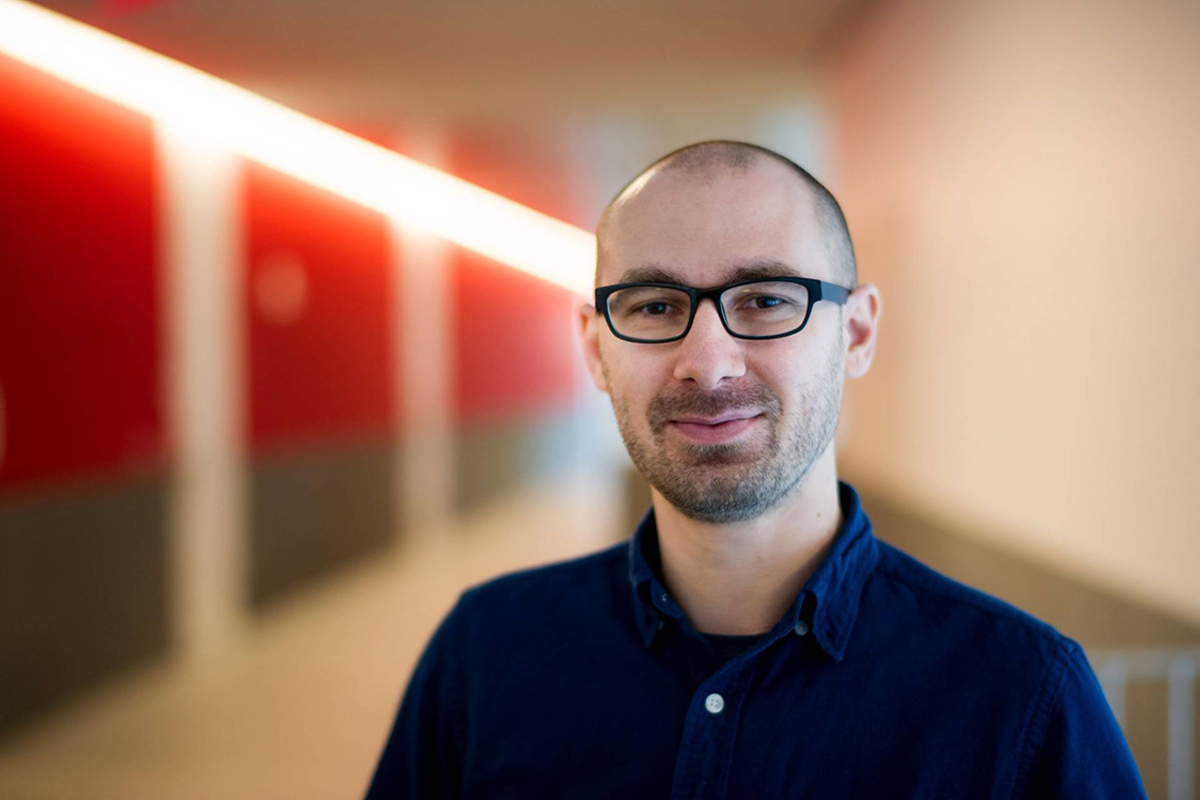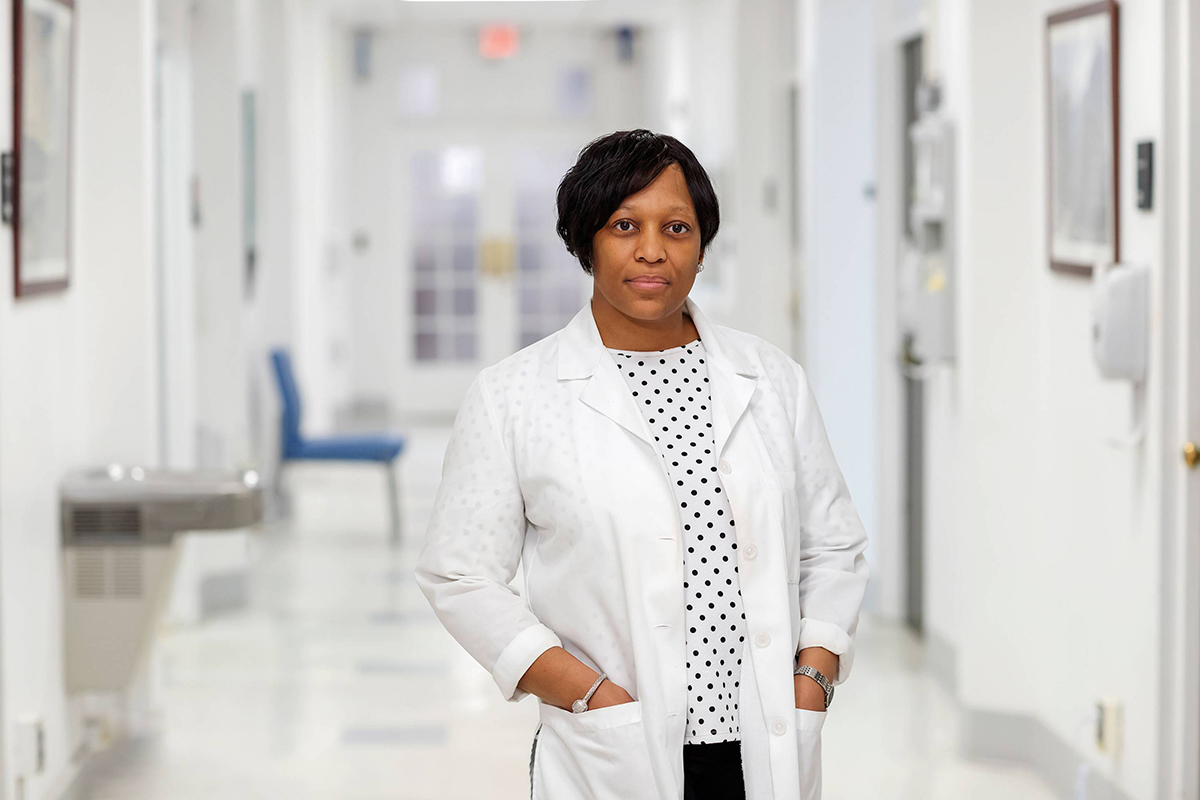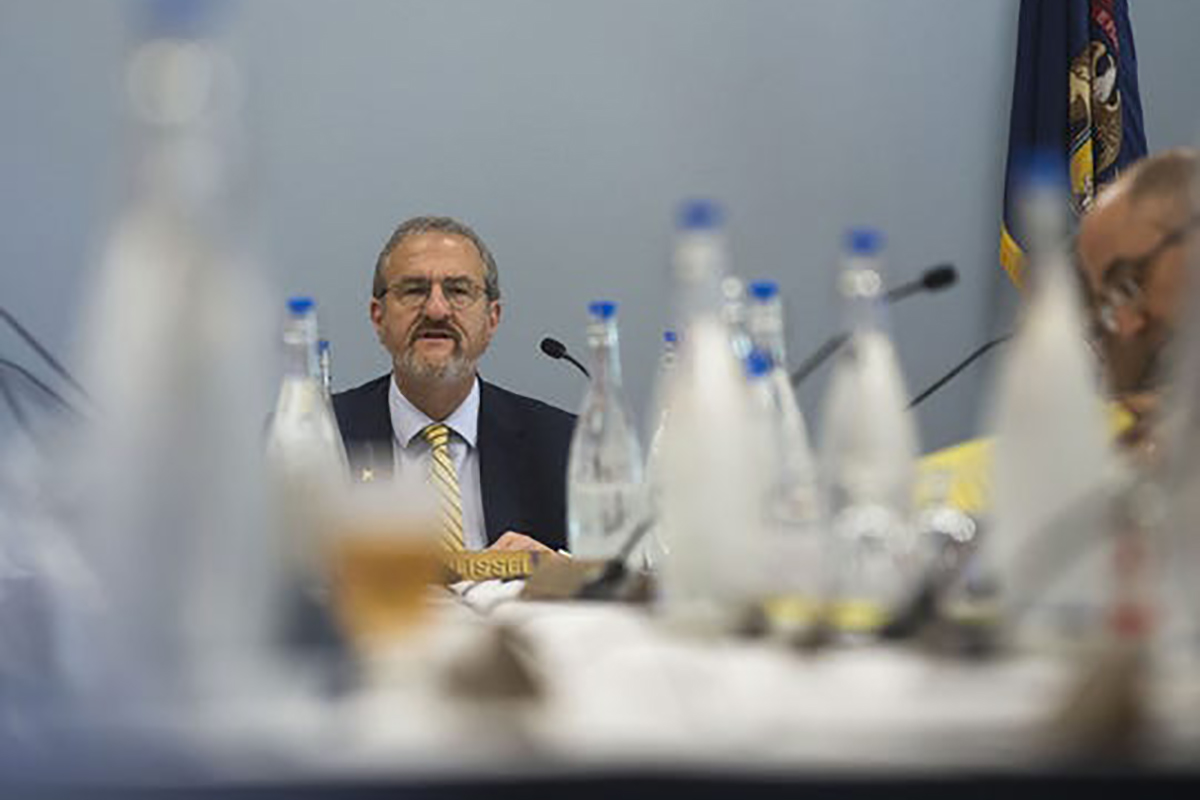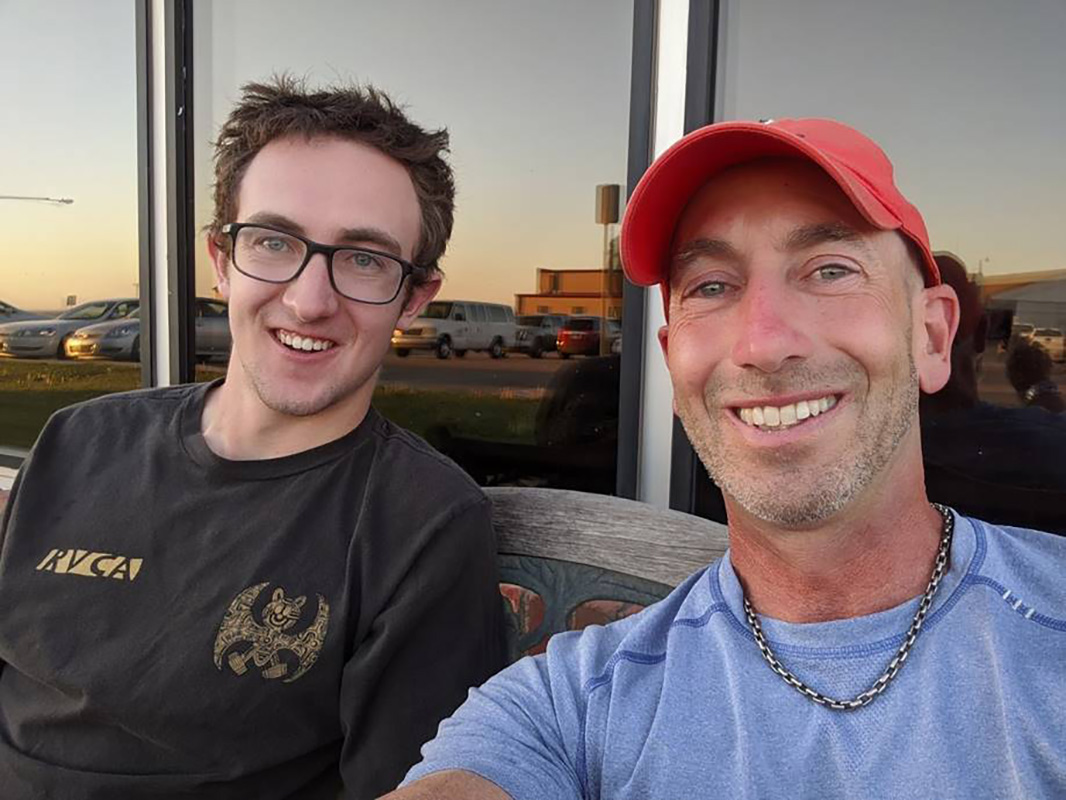
The mission: Get 10,000 N95 masks to Arizona for distribution to the Navajo Nation.
The challenge: The masks are in Chicago and the pilot is in Orange County, California.
The journey: 3,600 miles over three days, with seven pitstops, including an extra landing in Omaha, Nebraska, to deliver 1,250 more masks to help rural communities near there.
When California attorney Todd Green ’90 volunteered to help transport personal protective equipment (PPE) to the Navajo Nation, little did he know that the effort would take him halfway across the country.
But when the email request came April 30, Green and his son, Asher, prepped to leave for Chicago the next day in their “small but mighty” Mooney Ovation two-seater for what became a meaningful trip.
From May 1 to 3, Todd and Asher, who is an incoming member of the Class of 2024, flew to deliver masks to two rural areas in need as volunteers for GetUsPPE.org, a grassroots movement founded by physicians and medical researchers to get PPE to healthcare providers. Todd, a private pilot, had made cross-country jaunts before, but for Asher, this was “a graduate-level course” in his own training to become a licensed pilot.
There was a lot to consider: the weather, the weight of the masks, where to touch down each night and if they would find a place to eat and sleep when they did.
Having barely left their home since March, the trip allowed the Greens more than an escape and a chance to see the beauty of the Grand Canyon and the Rockies. “We saw just how shut down the country was, the chaos and disruption,” Todd said. “Almost nothing was open. It was hard to get a meal. We saw what COVID-19 is doing to the country.”
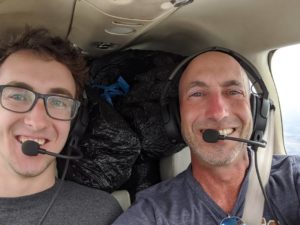
When they landed in New Mexico, for example, they called ahead to make sure there would be a hotel room available in Kansas. “We were really surprised because they said they were almost full,” Asher said. “Then we learned that was because the rooms were taken by the National Guard, who were there to help out with the meat-packing plants.”
Todd’s dispatches mark the journey from Orange County, California, over the Grand Canyon to Four Corners, New Mexico; on to Dodge City, Kansas, and Chicago, where 11,250 masks were stuffed into trash bags because the 12 boxes the masks had been packed in didn’t fit inside the plane; a pitstop in Omaha, Nebraska, to deliver two bags of masks; on to Pueblo, Colorado, to stage a sunrise crossing over the Rockies when the air was “cool and smooth”; and then on to Scottsdale Airport to unload the rest of their cargo to volunteers with stopthebug.org, a partner organization with a similar mission to GetUsPPE.
From Scottsdale, the father and son made “a quick hop” back home, with Asher navigating that leg of the flight by hand rather than using autopilot as they had for the rest of the trip.
On reflection, Todd says the silver lining to the disruption the pandemic has caused is what the Greens encountered in all the volunteers who they met at each stop. “No one’s getting paid,” Todd said. “All these people are just trying to help.”


